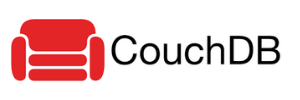List of data catalogs tools
Data catalog is a structured collection of data used by an organization. It is a kind of data library where data is indexed, well-organized, and securely stored. Most data catalog tools contain information about the source, data usage, relationships between entities as well as data lineage. This provides a description of the origin of the data and tracks changes in the data to its final form.
List of tools that enable design and building of data dictionaries .
Data Dictionary is a set of important information about data used within an organization (metadata). This information includes names, definitions, and attributes about data, owners, and creators of assets. Data Dictionary tools provide insights into meaning and purposes of data elements. They add useful aliases about the scope and characteristics of data elements, as well as the rules for their usage and application.
List of tools that help build, maintain an share business glossaries.
Business Glossary is a collection of definitions and terms used within a business unitorganization. It is not used to define data, but rather to define what a particular term means from a business perspective. The definitions are mapped and logically linked to entities in the database. This enables structured communication between teams and allows them to reveal potential errors resulting from incorrect nomenclature.
Data democratization tools enable the access of data by anyone in the organization, regardless of their role or technical knowledge, in order to make data-informed decisions. It's a crucial element which eliminates gatekeepers and bottlenecks that they create in the company.
List of data governance tools
Data governance is a strategy of handling data within an organization. It is a set of rules, policies, standards, practices etc. which main purpose is to ensure data has a high quality and integrity, is safely stored and there are no ambiguities in meaning of common terms. Applying this strategy is a long process, engaging whole organization, especially IT and data consuming departments. There are certain data governance tools which helps applying these theoretical plans in real life.
Data intelligence tools refer to the artificial intelligence and machine learning tools used by companies in order to analyze and transform data into information that is valuable and relevant for improving the company's operations.
Data lineage tools are software that allows to extract, view and analyze data lineage. Data lineage is the process of understanding and visualizing data flow from the source to different destinations. It allows to create a map of the data journey through the entire ecosystem.
Data literacy tools empower employees to read, work with, analyze, and communicate with data. It enables them to ask the right questions and build knowledge in order to communicate meanings through data. Data skills are now essential for any role and the lack of data literacy within the company can lead to misinterpretation and misrepresentation of the facts.
Data observability tools help the company track and understand the state of its data at any given time and provide it with full insight into their data pipelines. They also allow them to identify, monitor and troubleshoot errors in order to minimize data issues and improve high data quality.
Data Profiling tools allow analyzing, monitoring, and reviewing data from existing databases in order to provide critical insights. Data profiling can help organizations improve data quality and decision-making process by identifying problems and addressing them before they arise.
Data quality tools measure how good and useful a data set is to serve its intended purpose. High quality data can lead to better decision-making and faster insights as well as reduce the costs of identifying and dealing with bad data in the system. It can also save time and allow companies to focus on more important tasks.
Graphical user interface (GUI) tools consist of an interface that includes visual components such as buttons or icons, through which the user interacts with electronic devices. The biggest advantage of graphical user interface is an improvement in usability for the average person. It gives the ability to perform various tasks on an electronic device, without any programming knowledge.
List of metadata management tools
Metadata management tool is a solution that supplements the data stored by the enterprise environment with useful information. Proper metadata management is a crucial factor to make information searchable, easy to locate and understand. Such tools add meaningful context to raw data, making it convenient to discover even by non-IT members of an organization.
 SQL Server
SQL Server
 Oracle
Oracle
 MySQL
MySQL
 PostgreSQL
PostgreSQL
 Amazon Redshift
Amazon Redshift
 Azure SQL Database
Azure SQL Database
 DBT
DBT
 Google Big Query
Google Big Query
 IBM DB2
IBM DB2
 MariaDB
MariaDB
 SAP HANA
SAP HANA
 Snowflake
Snowflake
 SQLite
SQLite
 Teradata
Teradata
 Vertica
Vertica
